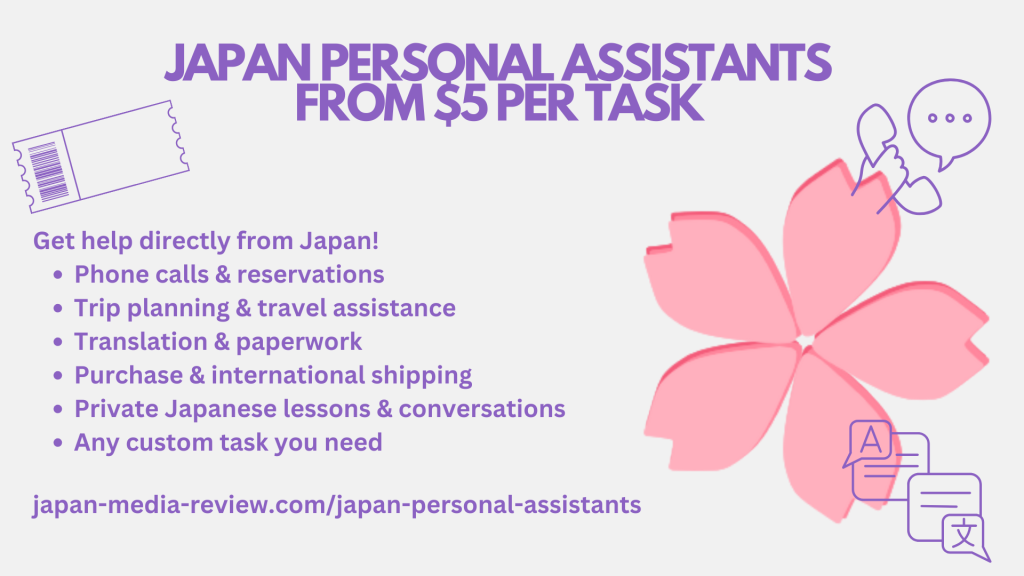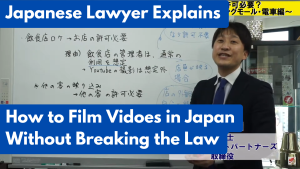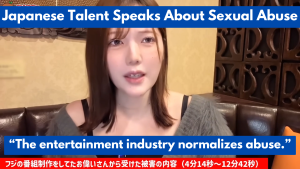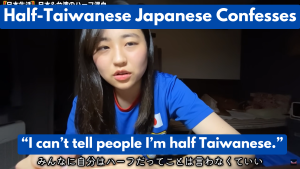Context
This is an interview of a former yakuza member who goes by the nickname Tetsu.
Tetsu has published a book detailing his former experience in the yakuza world: https://www.saiz.co.jp/saizhtml/bookisbn.php?i=4-8013-0563-2
He also has a YouTube channel where he talks about all things related to the yakuza: https://www.youtube.com/@blueyellow88888
Highlights
- Hiring Foreign Criminals: Yakuza groups increasingly rely on foreign criminals due to tougher anti-yakuza laws
- Chosen Ones: Killing is not considered a “dirty job” in the yakuza world; being chosen for such a task is seen as an honor and ladder to superstardom
- Selection of Hitmen: A hitman is chosen based on their ability to immediately understand the task and agree within 3 to 5 seconds when presented with tools for the job; hesitation or lack of comprehension disqualifies them
- Weapon Accessibility and Training: The yakuza have easy access to weapons and often receive training, sometimes overseas
Translation
Host: Tetsu used to be a yakuza member in Western Japan. Now, he’s a civilian working a regular job. We have invited him to speak about the world of the yakuza. Today, our main topic is “dirty jobs.” There are many dirty jobs in the yakuza world, including killing. In the manga series The Fable (ザ・ファブル), there are assassins who are hired by the yakuza. In reality, is it true that the yakuza hires assassins?
Tetsu: In my experience, I never encountered such things. However, in the yakuza world, we know that there are foreign criminals associated with foreign gangs from places like China who enter Japan illegally. We know that these foreign criminals can’t be caught even if they kill people because they are able to run back to their countries quickly. If someone in the yakuza world wants to hire an assassin, it’d make sense to hire a foreign criminal who can leave Japan right away after the job is done. If some yakuza groups decide to kill people like that, it’s hard for others to find out.
Host: I have heard that in the yakuza world, sometimes people ask foreign criminals to carry out dirty jobs and send them back to their home countries right after. This is something that happens, right?
Tetsu: Yes, it’s true. As anti-yakuza laws in Japan become stricter and legal penalties for yakuza violence become harsher in recent years, it’s more common for the yakuza to get foreigners to do dirty jobs. In the past, when the penalty for a Japanese yakuza killing someone was 10 years in prison, it was easier to get a Japanese to do the dirty job. Nowadays, if a dirty job will result in 30 years in prison, it’s much harder to get a Japanese to do the dirty work. Instead of sending a Japanese to prison for decades and looking after his family for such a long time, it’s much easier to just pay a foreigner to do the job. If we hire a foreigner who leaves Japan right away, there’s no aftermath and nothing to clean up.
Host: Is it true that yakuza groups have special killing divisions?
Tetsu: If someone from the headquarters needs protection, different divisions might send a few of their best fighters. There is no special division of fighters or killers. If violence is needed, it would be taken care of by a division leader who is good at handling violence. He might gather a number of members who are known to be good fighters. But this doesn’t necessarily mean that someone will get killed.
Host: Does the organization know who the good fighters are?
Tetsu: Yes. People know who the good fighters are and call them when there is a fight.

Host: Were you one of the good fighters?
Tetsu: Yes, I was known for doing physical jobs. I was better at fighting than making money. Maybe I wasn’t very skilled at fighting, but I was the type to charge into a fight without much thinking. So I guess my role was more like a vanguard.
Host: Do fighters work out regularly?
Tetsu: Some of them do.
Host: Have you seen someone being sent on a mission to kill?
Tetsu: If the organization wants someone dead, it might not explicitly send someone on a mission to kill. Instead, it might just send a top fighter to take care of the matter without explicit instruction to kill. If a top fighter gets into a fight with someone and becomes very angry, it’d easily result in the other person’s death. I think this is a more common way to kill in the yakuza world.
Host: How does the organization choose a hitman for a killing job?
Tetsu: Everyone in the organization is constantly evaluated on their behaviors and judgments. If the higher-ups think you can be trusted, when there’s an important job, they will place the tools to do the job in front of you. If you don’t understand what they are asking you to do within 3 to 5 seconds or don’t say yes immediately, you won’t get chosen for the job. If you immediately understand what they are asking you to do and say yes, then you are chosen. If the higher-ups give you the chance to say yes, they already know your character and ability and think that if you say yes, it means the job is done.
Host: Have you been chosen as the hitman before?
Tetsu: Yes, I was trusted with that type of job. However, I never actually ended up killing someone. The problems were solved without killing.
Host: I heard that those who are chosen to be the hitman tend to be older or terminally ill people with not much longer to live. Is that true?
Tetsu: Sometimes older leaders in their 60s or 70s would rather do the dirty jobs themselves instead of sending the youngsters. Maybe they think the youngsters can’t be trusted. Or maybe they are kind and don’t want the youngsters to face the consequences. Also, yakuza from the Showa era (before the 1990s) are a lot more hardcore. No matter how old they become, they want to fight on the frontlines.
Host: I saw some recent news of yakuza in their 70s being caught doing crazy things. Are these the ones with the Showa era mentality?
Tetsu: Yes. Some of the old guys think they can still fight like they are 30 or 40. They think the younger generations are weak.
Host: What’s considered a dirty job to the yakuza? Are there such things as dirty jobs? Or are dirty jobs just regular work?
Tetsu: That’s a difficult question. The yakuza don’t kill for no reason. Every time someone kills, it’s because the organization has a legitimate reason for it. Being chosen for such a job is an honor, so it’s not really a dirty job. In movies, those who are chosen to be hitmen are abandoned by the organization. In reality, if you are chosen, it means that you will become the superstar of your organization.
Host: Do the yakuza help non-yakuza kill people by selling them weapons and getting rid of the bodies?
Tetsu: Since Japan is an island, it’s very high risk to import weapons into the country. Importing and selling weapons are too risky. For the yakuza, it’s a lot less risky to just buy weapons. We knew the sellers of weapons and drugs, and we just bought from them.
Host: When you say weapon sellers, it reminds me of RPG games. These weapon sellers don’t actually have shops, right?
Tetsu: No, they don’t. We placed our orders through oral communication.
Host: I heard that a rocket launcher was recently found in Kyushu. Are there yakuza who use rocket launchers?
Tetsu: Things like grenades and rocket launchers have very few buyers in the yakuza world. Actually, there are virtually no buyers. If a weapon seller brought a rocket launcher to Japan despite the high risk, it must mean that someone specifically ordered a rocket launcher. If no one specifically ordered it, a weapon seller wouldn’t bring something that has no buyers.
Host: Can the yakuza get whatever weapons they want easily?
Tetsu: Yes, it’s easy to place orders and inquire about availability. You can just casually ask if there are any revolvers on sale like you are just shopping for normal things.
Host: Do the yakuza get trained on how to use weapons?
Tetsu: Yes. My former boss loved guns. I often went overseas to practice shooting. I was taught how to handle guns overseas.
Host: When the yakuza bosses get into a fight and beat up someone, do they ask their underlings to finish the person?
Tetsu: Sometimes yes. However, the underlings usually don’t use guns because erasing the evidence takes too long. If the killing isn’t carefully planned and prepared for evidence erasure, they usually just finish the person with their bare hands, like beating or strangling.
Host: Do the higher-ups pass on their knowledge of fighting and killing to the younger members?
Tetsu: Yes. The youngsters need to learn how to use a gun. Some people know how to handle dead bodies, among other things. Such knowledge is passed on.
Host: Are there scary bosses?
Tetsu: I don’t personally know this boss, but according to rumors, a famous boss in the Kansai area who deals drugs is pretty crazy. He used to go out to the ocean to fish with his underlings. If one of the underlings pissed him off, he’d kick him into the ocean and leave him to drown. I don’t know if those kicked into the ocean survived. I heard this happened quite frequently.
Host: That’s so scary.
Tetsu: Nowadays, people often say that the yakuza aren’t threatening anymore. However, with incidents like the rocket launcher, people get reminded of the fact that the yakuza is still alive and a threat.
Support us with a one-time donation!
Tired of learning about Japan through Western interpretations? Japan Media Review translates Japanese media to show you what Japan is really talking about.
Bluesky Social: @japan-media-review.bsky.social
YouTube: https://www.youtube.com/@JapanMediaReview
Exclusive content on Patreon: https://www.patreon.com/c/JapanMediaReview



